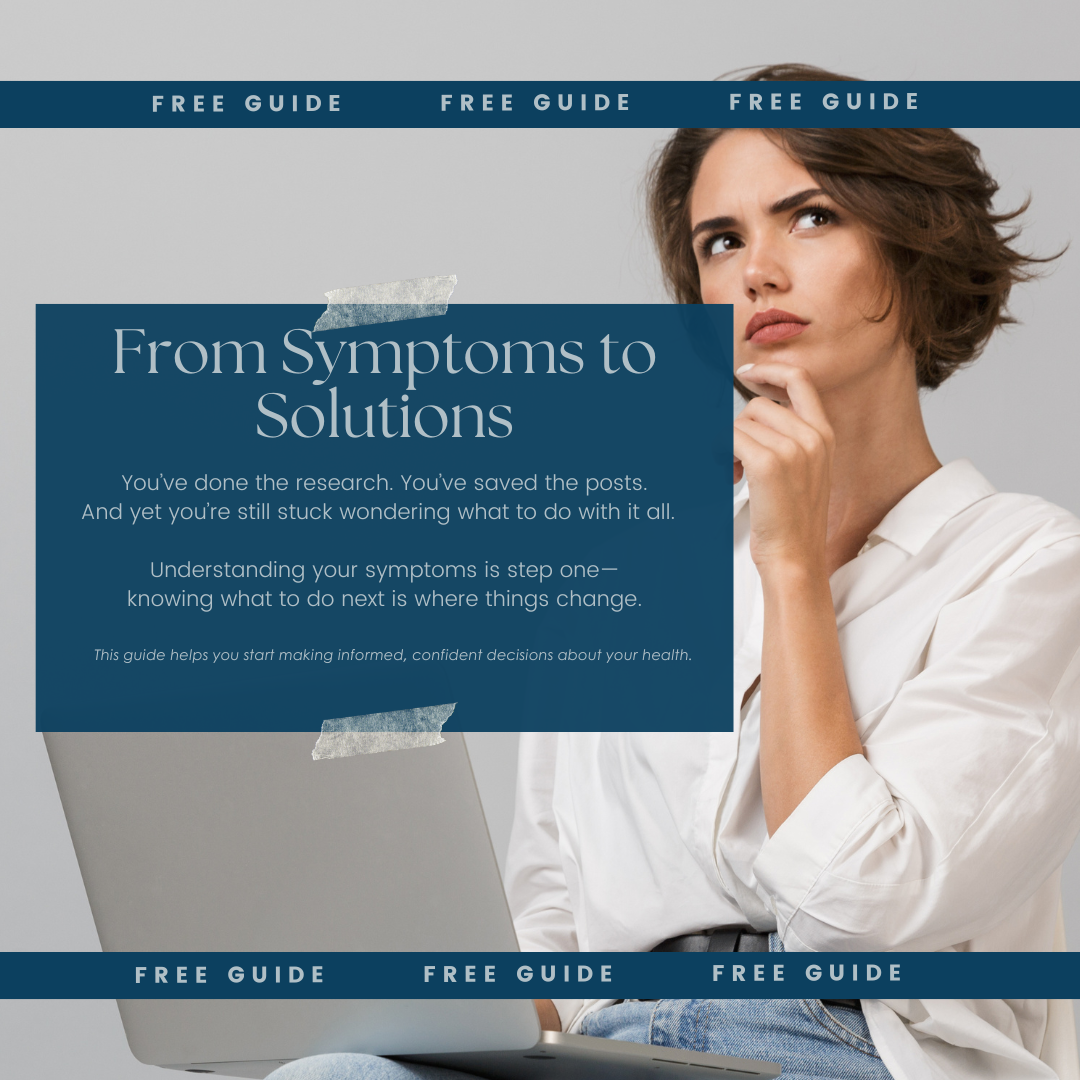The Most Common Signs of Perimenopause and How to Prepare For this New Season
Mar 11, 2021
Menopause - according to TV and movies - is the moment in a woman's life that makes her crazy, moody, dried up, less attractive, less valuable, basically a time to be sent out to pasture to live out her few remaining “good” years.
HOLY BULL SHIT BATMAN!!
Before I go into how Menopause (and midlife) is really your opportunity to seize the day and live as your most authentic, truest self (what I like to refer to as our caterpillar 🐛 to 🦋 butterfly moment), let's start with the science part of the menopause.
-
Perimenopause is the transition from your reproductive years (pre-menopause) to menopause.
-
Perimenopause can begin as early as 35 and as late as 59, and can last anywhere from 2-13 years. That's a really long time to feel overwhelmed and confused about what's happening with your body!!
-
The prefix Peri means around. About 10-15 years before you reach menopause, your body starts giving you tiny hints that changes are coming. You may notice differences in your periods, including changes to the length, frequency, duration, or flow.
-
If you had been keeping track, you would likely see that the length of of you cycle has changed from what you experienced in your 20 to mid 30s. This happens when the "mature" follicles produce less progesterone during each cycle, in turn shortening the period of time when the uterine lining thickens in preparation for a fertilized egg. It's actually pretty interested, all that's going on in our bodies!
-
The closer you get to the end of your reproductive years, the more changes you may notice to the duration and flow of your cycle.
Here’s the really cool thing:
If you’ve noticed changes in your body, it’s a very good possibility that you are in the beginning stages of menopause, known as perimenopause. Symptoms like:
Hot flashes and/or night sweats
Insomnia or sleep disturbance
Fatigue, lack of energy
Moodiness or irritability
Poor memory or concentration / brain fog
Weight gain, especially around the middle
Low libido
Vaginal dryness
Irregular periods
Heart Palpitations
Urinary incontinence, frequency or urgency
Urinary tract infections
Skin changes (increased wrinkling or dryness)
Hair issues (dry, falling out, change in texture)
And there are other changes happening inside your body that you can’t feel, including bone loss, which often accelerates during the menopause transition.
Even though the symptoms are very similar, perimenopause and menopause are different journeys for every woman and so are the ways to minimize the effects. So just because something worked for your BFF or your sister doesn’t guarantee that it’s going to work for you. Be open about trying new things. It is a process . . . a long process, so being informed is your best line of defense!!
There is no predictor on when you are going to start your menopause journey. Again, every woman is different. The average age of menopause is 51, but you can start the change as early as mid/late 30s.
There are a few other things to know when comes to early menopause:
-
Family history of early menopause means you are 60% more likely to go through menopause before the average age. So I definitely encourage you to open that discussion with your female family members and see when they hit menopause.
-
Poor nutrition makes it impossible for your body to get the nutrients it needs for even basic hormonal balance. A diet made up of mainly processed or sugary foods is going to work against you and your need for a balanced hormones. Keeping our hormones healthy and level is the best way to minimize early menopause. Trust me, lifestyle matters.
-
Environmental toxins and certain chemical
-
Smoking increases your risk of early menopause by 30%, making it a major influence on your hormonal health.
Menopause happens when there is a severe hormonal imbalance. Finding ways to make the shifts less extreme can reduce your symptoms and decrease their intensity.
Here are a few ways to help you stay comfortable, healthy, and happy:
1. Nutrition: opt for a whole, real foods diet! Your body is still making hormones and nutrient dense foods - fresh veggies, fruits, healthy fats, lean animal proteins or plant based proteins, legume, and fiber are going to help keep your levels balanced. You know the drill by now, limit sugar, alcohol, and caffeine to help minimize symptoms and hormones shifts. And you can always talk to your doctor about taking supplements.
2. Check out using herbs to help minimize symptoms. This can help with gut health, energy, insomnia, and brain fog. Herbs like black cohosh, red clover, passionflower, and wild yam. Ashwagandha is a great mood-stabilizer and aphrodisiac. Herbs can help smooth out the hormonal spikes in cortisol, estrogen and progesterone. Again, talk with your doctor before adding supplements.
3. Make some small lifestyle changes. Hormonal balance is easier to achieve when you move your body, focus on decreasing stress and prioritizing quality sleep and fueling your body properly (see #1)
If you have more questions about menopause or your specific journey - please reach out to me and book a FREE call! I’m here for you!!
Stay connected with news and updates!
Join our mailing list to receive the latest news and updates from our team.
Don't worry, your information will not be shared.
We hate SPAM. We will never sell your information, for any reason.


